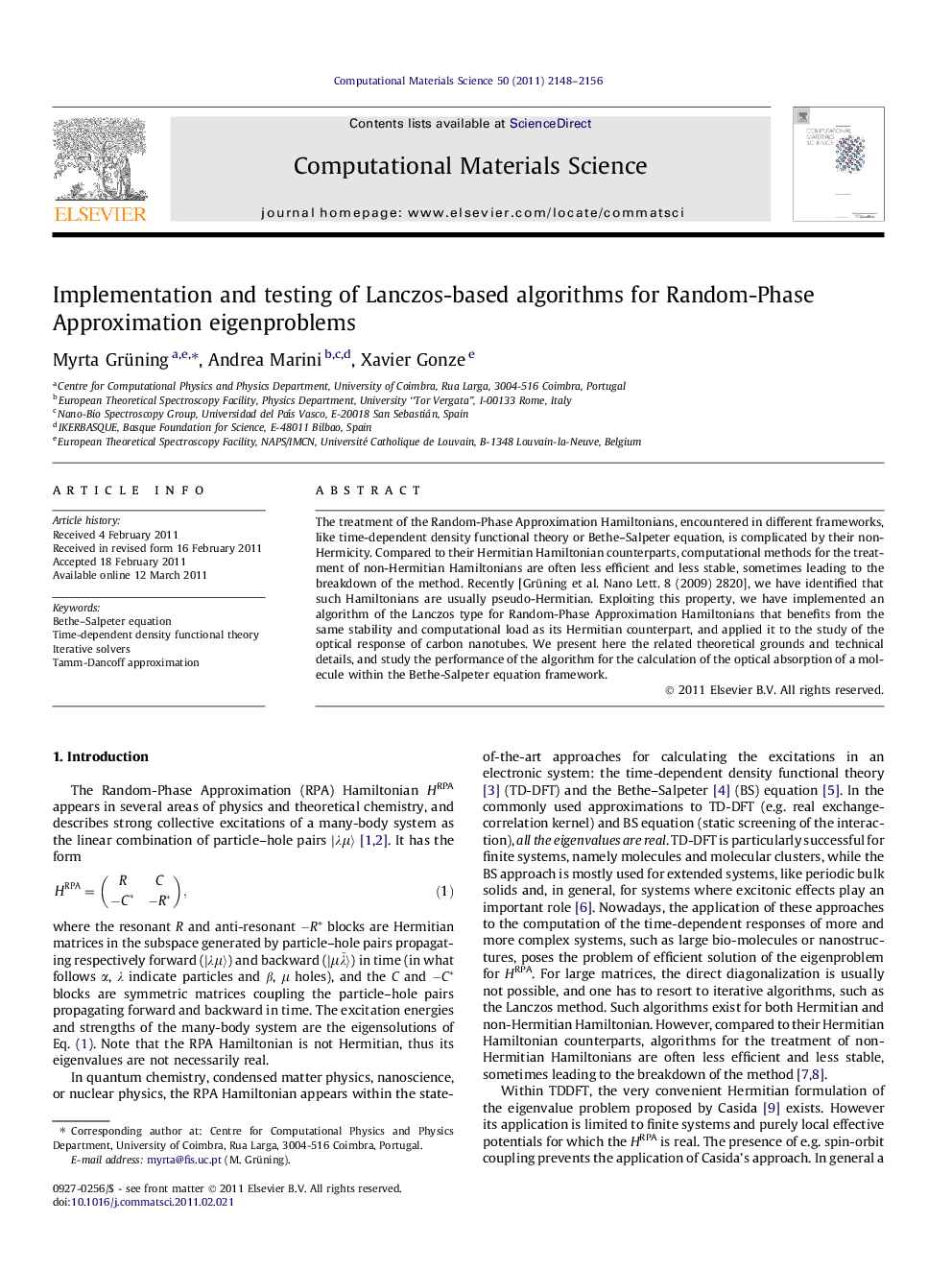| کد مقاله | کد نشریه | سال انتشار | مقاله انگلیسی | نسخه تمام متن |
|---|---|---|---|---|
| 1562477 | 999588 | 2011 | 9 صفحه PDF | دانلود رایگان |

The treatment of the Random-Phase Approximation Hamiltonians, encountered in different frameworks, like time-dependent density functional theory or Bethe–Salpeter equation, is complicated by their non-Hermicity. Compared to their Hermitian Hamiltonian counterparts, computational methods for the treatment of non-Hermitian Hamiltonians are often less efficient and less stable, sometimes leading to the breakdown of the method. Recently [Grüning et al. Nano Lett. 8 (2009) 2820], we have identified that such Hamiltonians are usually pseudo-Hermitian. Exploiting this property, we have implemented an algorithm of the Lanczos type for Random-Phase Approximation Hamiltonians that benefits from the same stability and computational load as its Hermitian counterpart, and applied it to the study of the optical response of carbon nanotubes. We present here the related theoretical grounds and technical details, and study the performance of the algorithm for the calculation of the optical absorption of a molecule within the Bethe-Salpeter equation framework.
Research highlights
► Treatment of Random-Phase Approximation hamiltonians is complicated by non-Hermicity.
► We identified that such Hamiltonians are pseudo-Hermitian.
► We implemented a Lanczos algorithm for Random-Phase Approximation Hamiltonians.
► The algorithm is as stable and computationally expensive as in the Hermitian case.
► We tested its performance on the optical absorption of thrichlorobenzene.
Journal: Computational Materials Science - Volume 50, Issue 7, May 2011, Pages 2148–2156